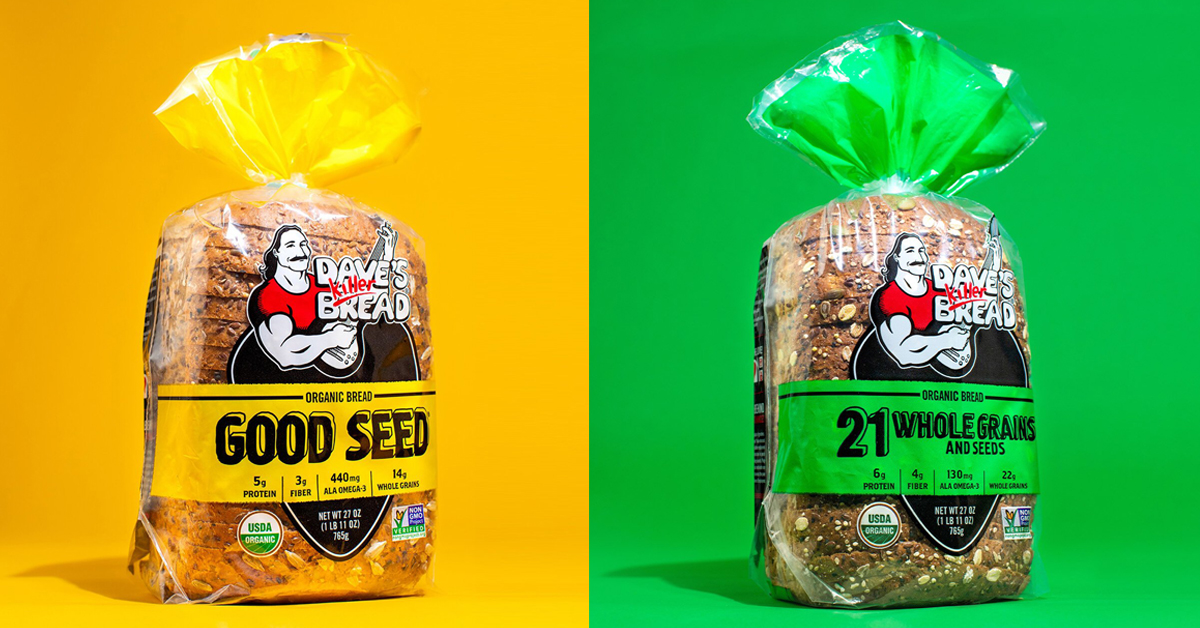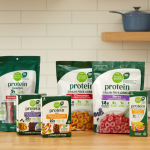Dave’s Killer Bread Can’t Kill Off Deceptive Ad Suit

Dave’s Killer Bread will have to face accusations that it’s “Good Seed” and “21 Whole Grain” breads deceive consumers about their protein content after a California federal judge recently moved to certify the class of consumers who purchase the products in the state between December 29, 2017 and September 23, 2024.
The complaint, originally filed in December 2021, alleges the product’s on-pack claims that it contains 5 grams of protein per serving are deceptive as not all of the protein is digestible by the human gut.
The plaintiff claims that the “unlawful labels” violate U.S. Food and Drug Administration (FDA) regulations as well as California’s Unfair Competition Law. The FDA mandates that protein content is calculated via the protein digestibility corrected amino acid score (“PDCAAS”) method and listed as a percentage of daily value (%DV) on labels.
Dave’s Killer Bread is also facing a class action in Illinois alleging the same issue; that class, which an Illinois district judge moved to consolidate into one on August 8, stems from two separate suits filed in December 2023 and March 2024. Dave’s has filed a motion to dismiss the Illinois case which is now awaiting a hearing.
For now in California, the class action will move ahead, assuming attorneys for both parties maintain good behavior. Earlier this month, Judge Yvonne Gonzalez Rogers threatened to sanction both attorneys for “flooding” the docket with “unnecessary motions” ahead of the hearing. According to data pulled from the Public Access to Court Electronic Records (PACER), 139 documents have been filed in relation to the case and at times, upwards of 50 motions have been contained within select filings.
While consumer-led class actions over allegations of deceptive label claims have been on the rise within the CPG food and beverage industry in recent years – with the vast majority notably stemming from a single attorney, Spencer Sheehan – most are often quickly dismissed or settled between the two parties. However, the case against Dave’s, which is now in its third year in litigation, appears to have some standing, at least in the eyes of the judge.
Earlier this month, Judge Rogers also weighed in on a survey brought forth by the plaintiff that tested whether consumers would pay a premium for bread containing protein. The judge certified that the survey methodology used “sufficiently” tests this purchasing behavior in relation to front-of-pack protein claims.
The class certification also comes after the court originally granted a motion to dismiss with leave to amend; a second motion to dismiss, filed after the suit was amended, was denied as the judge said the plaintiff has demonstrated he paid a premium price for a product containing unlawful labels.
“Plaintiff’s theory that he paid a price premium attributable to unlawful labels sufficiently pleads an injury in fact that is fairly traceable to the challenged conduct of the defendant,” the order for the class certification states. “Finally, defendants argue that plaintiff stated in his deposition that he did not know how %DV is calculated, or that it relates to ‘useable protein.’ Here, too, plaintiff’s claim does not require reliance on a misleading statement; only that plaintiff bought an unlawful product and paid a premium. Plaintiff has done so, and therefore established Article III standing.”
Dave’s Killer Bread did not respond to a request for comment ahead of publication.















![[Updated] Oats Overnights Secures $45M Investment From Astō](https://d2azl42aua8mom.cloudfront.net/wp-content/uploads/2026/01/29172259/2026-01-29-oats-overnights-secures-45m-in-growth-equity-from-square-150x150.jpg)

